#adelaida comic
Text

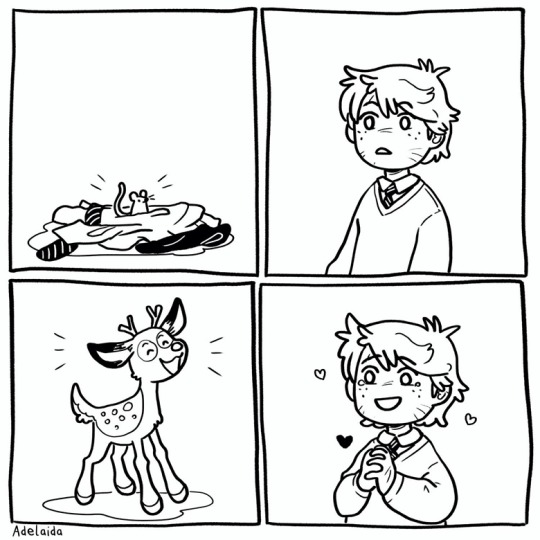
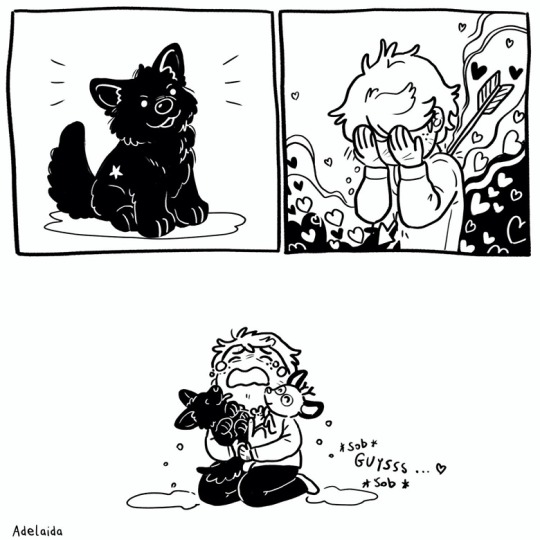
OK but what if you're a baby animagus when you first do it and you need to grow into an adult form
#wolfstar#the marauders#sirius black#remus lupin#james potter#peter pettigrew#adelaida comic#adelaida art#i just think its super adorable ok#i'd squeeze-hug the living daylight out of them
13K notes
·
View notes
Text
Some thoughts on how Dmitri Karamazov and Pavel Smerdyakov are perfect foils
*Keep in mind that this contains spoilers for the entire book and that in order for this comparison to work, one must assume that the rumour about Fyodor being Pavel Smerdyakov's biological father has to be true.
While there is a lot written on the theological debate of Ivan and Alyosha Karamazov, I have yet to see a comparison of Mitya Karamazov and Pavel Smerdyakov. Perhaps I haven't explored enough, but these are my two cents (dare I say 3000 rubles) on the matter. Both taken care of by Grigory, both suspects in the murder of Fyodor Pavlovich, yet two men couldn't be more different from each other. I will write down my thoughts in this order:
Different from their birth (social circumstances)
Contrasting the individuals (their descriptions and characterization, side by side)
Brotherhood (relationships to Ivan and Alyosha, preparation for the next point
Narrative (their place in the narrative)
1. Different from their birth
From even before they were born, their paths are opposed. Mitya is born out of the union of Fyodor Pavlovich and Adelaida Miusova, an aristocratic, beautiful and educated young woman who married Fyodor against her family's wishes and was no innocent victim of his. Even when he left her son, it was her choice, though a hard one (and probably the best one, considering her fate.)(BookI,chapter1). Stinking Lizaveta didn't have much of a choice. She was a poor and mentally disabled woman who suffered violence from Fyodor shortly after Adelaida left, and died in childbirth (BIIIch2). Mitya keeps a connection to his mother through his inheritance, but for Pavel, it's a curse. He is "the stinking son of Stinking Lizaveta", and ironically the child that remains in his father's home for the longest time.
From these circumstances, the children grow up to be a firstborn who feels entitled to what he feels is owed to him, and an illegitimate son whose work as a servant is taken for granted. Yet, even when Mitya is of a good social position and Pavel is of a lower one, Mitya is the one who seems to sink below what is considered to be how an aristocrat should act in public and is compared to a beast, and he has often surrounded himself with peasants in his parties. Pavel is the one who takes small steps to strive for more than what he's given, he likes to dress well, he learns and has aspirations beyond what he's expected to do. (For this whole paragraph, BVch2)
2. Contrasting the individuals
Their differences come down to individual characteristics as well, and it's evident even in how they present themselves. Mitya is described as muscular and sporting signs of masculinity like a moustache that is often seen in military men (BIIch6) He walks with long strides, he's loud, outwardly emotional and often gesticulates in exaggerated manners. Pavel's main physical feature is his weakness and sickliness. Compared to Mitya's masculinity, Pavel is portrayed as emasculate, as he is compared to an eunuch. He has a silent and discreet demeanour, and he's not very expressive. (BIIIch6, BIXch6)
Mitya is impulsive. This causes him to have a temper and not be very smart in the way that requires focus, patience and forethought (seeing him as completely stupid leaves out so much of his character). What Pavel lacks in the physical strength that Mitya has, he makes up for with a more calculated and patient approach. He's neat and meticulous even in the night of the murder, while Mitya runs around stained in blood. Speaking of meticulousness, it's interesing to me how Pavel's behaviour could be described as effeminate, while Mitya's masculinity is overdone through several masculine stereotypes at once (the knight of honour, the brute, the sensitive and tortured artist).
When it comes to women, God, their country and poetry, their opinions are comically different. Mitya enjoys the attention he gets from women and returns it, he expresses love for God and Russia in the text and he's very fond of poetry, quoting it often and even speaking with rhymes and wordplays at times. (BookIIIchIII&IV, Epilogue 2). Pavel happens to disdain all of these. While he holds contempt for both men and women, the suggestion of marriage digusted him. He rejects God, claims to hate all of Russia and declares that poetry is rubbish ("who ever talks in rhyme?" well, it seems like Mitya does)(BIIIch6, BVch2).
3. Brotherhood
Ivan and Alyosha, the children of Sofia Ivanovna, have contrasting relationships with their half- brothers. Mitya, who quickly grew fond of Alyosha, puts him in a moral high- ground and pours out his heart to him. Alyosha accepts it and reciprocates his brotherly love, even if he isn't as outwardly enthusiastic. Pavel, on the other hand, looked up to Ivan on the basis of thinking they could be alike and shows great interest in Ivan's displays of intellect. Ivan is increasingly scornful of Pavel as the story progresses. Ivan and Alyosha's contrasts extend to their half- brothers as well. Mitya and Alyosha are the life- affirming pair of half- brothers, while Ivan and Pavel are the pair with the ideas deemed destructive by the narrative.
Two fun contrasts I noticed, as a side note:
Mitya and Alyosha are two sides of not working for money, and Pavel and Ivan are two sides of work.
Book III ends with Alyosha and Mitya parting ways and Book V ends with Pavel and Ivan parting ways.
4. Narrative
While Ivan and Alyosha carry the theological and philosophical discussion in the heart of the book, Mitya and Pavel are the main players in the world that puts the theories and ideals to the test. Dostoyevsky's narrative attempts to make the reader sympathize and have faith in the greatly flawed human being that is Mitya. Those who believed in his capacity for spontaneous good will never believe that he murdered his father, while those who didn't would have a harder time believing in his open- ended redemption. Pavel's case is a little more complicated. His inner thoughts aren't as exposed as Mitya's, and his motivations aren't explicitly nor reliably stated, so it's harder to consider his importance unless one pays attention to how the narrator presents him as an outsider, a shallow presence. Not even his relationship with Marya is explored. I have my reasons to believe this may be a deliberate choice, since a theme in Fyodor Dostoyevsky's work is the suffering of the lower classes. Mitya is a great character, but Pavel isn't, not because he's badly written, but because perhaps his conflicts aren't Mitya's intense and paradoxical angst and passion. Perhaps there is a lot of boring and unromantic pain in the world.
Mitya and Pavel execute Alyosha's and Ivan's respective positions, even further. Mitya's religious fervor surpasses Alyosha's, his faith is a simple and unwavering affirmation even when he's drowning in the guilt of sin or Rakitin pesters him to dissuade him from his faith. His religiosity goes so far that he overdoes one of the core ideas of the book: while he embraces Zosima's idea of guilt for all, it doesn't just mean that he should be guilty for everyone, but that everyone is guilty for everyone else. Those are fundamentally different things. As for Pavel, he dared to do what Ivan doesn't, he put his ideas in practice (BXIch7-8). However, I don't believe that he was directly inspired by him. I think he adapted the ideas to his own interests. Sometimes people love to realize what they already knew, and wait until they find a justification. One of my favourite things about Dostoyevsky is that we see the philosophical content happen in the world of his stories.
From their birth to their fates, two men couldn't be more different. Mitya, who acted or expressed himself in a suicidal manner well over ten times, ultimately stays away from the pistols and declares a sense of responsibility for a crime he did not commit. Pavel, who was shown to feel attachment to his own life and save his own skin, destroys himself out of his own volition after tormenting Ivan.
Thank you so much for reading if you made it all the way to the end!
#the brothers karamazov#how do I even tag this? tbh I could write even more on this#tbk#dmitri karamazov#pavel smerdyakov#fyodor dostoyevsky
71 notes
·
View notes
Text
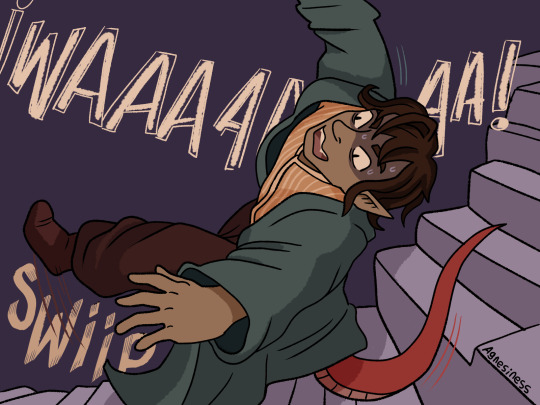
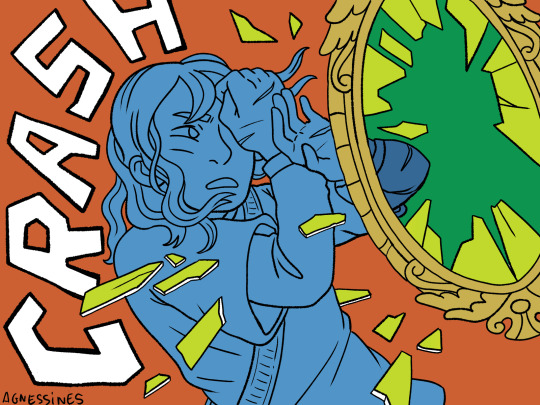

Comic sound effects feat some of my Ocs: Amin, Adelaida and Alex.
I realized my comics don't usually have onomatopoeias and I'm doing a little challenge with a single panel each time. Hope you like it!
1 note
·
View note
Text
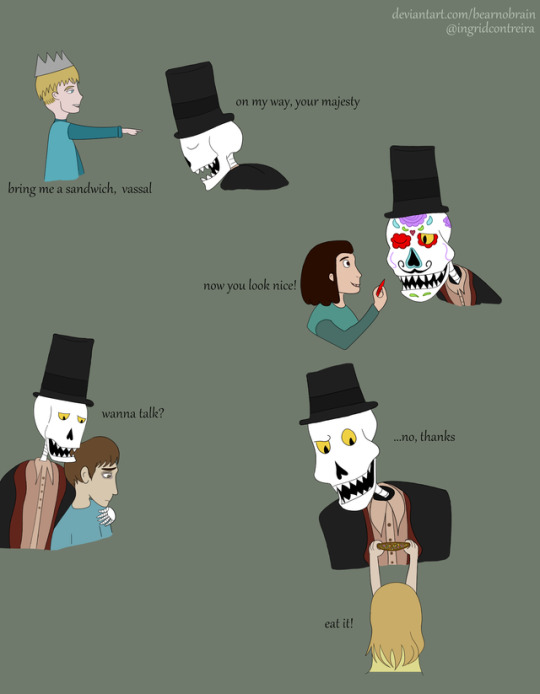

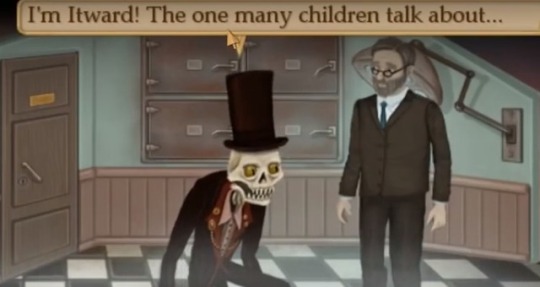
Hello. Sorry my bad english
By the time i saw this line in the game, i thought about itward taking care of the other kids at the asylum. I dont know why, maybe because he was saying It to the doctor.
Also, this is my First comic (if It can be called "comic")
Hope you like it
#fran bow itward#itward#fran bow#franbow#fran bow fanart#skeleton#comic#fanart#gamefanart#imaginary friend#jason cogh#philmore bronstone#adelaida fugents#annie szhultz#damian golsman#robert clark#isabelle#victoria#myart
104 notes
·
View notes
Text
Summary, Reading I Authority, ownership, originality by Veera Kemppainen, 27 Sept 2021
After our meeting with our reading group I noticed that we had similar thoughts regarding to text and overall subject of authority, ownership and originality. But in same time it was interesting to see how our group members had thought a lot this subject from their own perspective. We all have different pasts and experiences as a designers and therefore our examples at working life were different. We were looking at subject from example creative agencies, news media publications, designing collectives, or comic artists point of views.
We had this same thought about romantic authorship being somehow complex in designer’s life in general. Almost every time projects are created with big team where there is lot of people affects on. Almost every project someone still ends up in position of creator. In our society in general there is this strong competitive culture and individualistic idea of “masterminds”. That there is this one or two genious persons who is behind all great ideas. We also discussed about that word “mastermind” and how it is many times misleading term. It is so much easier for people to pick just one person and give to them the credit, than it is to recognize the long process behind result and specify different people who were part of project.
Company, group or collective owns copyrights but what about "romantic" creatorship and do we even want to own it as a visual designers?
We had all thought about how important ownership is for designers compared to artists. Artists need to have this ownership because many times artistic work is related to artists own life and personal attachment. There was this nice drawing by Adelaida where there was basically said about artists work: “not user, the viewer” I think that sums up the problem of authorship in designing part. Designers should think their designs users rather than viewers. Often designers still think more about how for examble other designers see the result or how that design ends up looking for their own benefit. That’s why giving up authorship in designing eases the creative process and serves more the cause in many (not all) cases.
Also I wanted to summarize my thoughts about that "oral tradition" and how it seems to me that we are kind of going back to that era with social media. Because that discussion we had with our mouths senturies ago, are just transformed to modern days Twitter posts. I started to think when was the last time I have read actual book with author, and It's been a while. All I can member is these nameless articles from internet (or not nameless but who will read the names at the end of text?) . Is it bad thing that people read these collages of different texts instead of reading book with one writer?
Anyways, I found these discussions really inspiring. I still think a lot about questions like "where did I got this idea from?" or "is this really original thought?" really often. Now I at least know that everyone else thinks same things.
0 notes
Text
Fyodor Pavlovitch Karamazov
ALEXEY Fyodorovitch Karamazov was the third son of Fyodor Pavlovitch Karamazov, a landowner well known in our district in his own day, and still remembered among us owing to his gloomy and tragic death, which happened thirteen years ago, and which I shall describe in its proper place. For the present I will only say that this "landowner" - for so we used to call him, although he hardly spent a day of his life on his own estate - was a strange type, yet one pretty frequently to be met with, a type abject and vicious and at the same time senseless. But he was one of those senseless persons who are very well capable of looking after their worldly affairs, and, apparently, after nothing else. Fyodor Pavlovitch, for instance, began with next to nothing; his estate was of the smallest; he ran to dine at other men's tables, and fastened on them as a toady, yet at his death it appeared that he had a hundred thousand roubles in hard cash. At the same time, he was all his life one of the most senseless, fantastical fellows in the whole district. I repeat, it was not stupidity - the majority of these fantastical fellows are shrewd and intelligent enough - but just senselessness, and a peculiar national form of it.
He was married twice, and had three sons, the eldest, Dmitri, by his first wife, and two, Ivan and Alexey, by his second. Fyodor Pavlovitch's first wife, Adelaida Ivanovna, belonged to a fairly rich and distinguished noble family, also landowners in our district, the Miusovs. How it came to pass that an heiress, who was also a beauty, and moreover one of those vigorous intelligent girls, so common in this generation, but sometimes also to be found in the last, could have married such a worthless, puny weakling, as we all called him, I won't attempt to explain. I knew a young lady of the last "romantic" generation who after some years of an enigmatic passion for a gentleman, whom she might quite easily have married at any moment, invented insuperable obstacles to their union, and ended by throwing herself one stormy night into a rather deep and rapid river from a high bank, almost a precipice, and so perished, entirely to satisfy her own caprice, and to be like Shakespeare's Ophelia. Indeed, if this precipice, a chosen and favourite spot of hers, had been less picturesque, if there had been a prosaic flat bank in its place, most likely the suicide would never have taken place. This is a fact, and probably there have been not a few similar instances in the last two or three generations. Adelaida Ivanovna Miusov's action was similarly, no doubt, an echo of other people's ideas, and was due to the irritation caused by lack of mental freedom. She wanted, perhaps, to show her feminine independence, to override class distinctions and the despotism of her family. And a pliable imagination persuaded her, we must suppose, for a brief moment, that Fyodor Pavlovitch, in spite of his parasitic position, was one of the bold and ironical spirits of that progressive epoch, though he was, in fact, an ill-natured buffoon and nothing more. What gave the marriage piquancy was that it was preceded by an elopement, and this greatly captivated Adelaida Ivanovna's fancy. Fyodor Pavlovitch's position at the time made him specially eager for any such enterprise, for he was passionately anxious to make a career in one way or another. To attach himself to a good family and obtain a dowry was an alluring prospect. As for mutual love it did not exist apparently, either in the bride or in him, in spite of Adelaida Ivanovna's beauty. This was, perhaps, a unique case of the kind in the life of Fyodor Pavlovitch, who was always of a voluptuous temper, and ready to run after any petticoat on the slightest encouragement. She seems to have been the only woman who made no particular appeal to his senses.
Immediatley after the elopement Adelaida Ivanovna discerned in a flash that she had no feeling for her husband but contempt. The marriage accordingly showed itself in its true colours with extraordinary rapidity. Although the family accepted the event pretty quickly and apportioned the runaway bride her dowry, the husband and wife began to lead a most disorderly life, and there were everlasting scenes between them. It was said that the young wife showed incomparably more generosity and dignity than Fyodor Pavlovitch, who, as is now known, got hold of all her money up to twenty five thousand roubles as soon as she received it, so that those thousands were lost to her forever. The little village and the rather fine town house which formed part of her dowry he did his utmost for a long time to transfer to his name, by means of some deed of conveyance. He would probably have succeeded, merely from her moral fatigue and desire to get rid of him, and from the contempt and loathing he aroused by his persistent and shameless importunity. But, fortunately, Adelaida Ivanovna's family intervened and circumvented his greediness. It is known for a fact that frequent fights took place between the husband and wife, but rumour had it that Fyodor Pavlovitch did not beat his wife but was beaten by her, for she was a hot-tempered, bold, dark-browed, impatient woman, possessed of remarkable physical strength. Finally, she left the house and ran away from Fyodor Pavlovitch with a destitute divinity student, leaving Mitya, a child of three years old, in her husband's hands. Immediately Fyodor Pavlovitch introduced a regular harem into the house, and abandoned himself to orgies of drunkenness. In the intervals he used to drive all over the province, complaining tearfully to each and all of Adelaida Ivanovna's having left him, going into details too disgraceful for a husband to mention in regard to his own married life. What seemed to gratify him and flatter his self-love most was to play the ridiculous part of the injured husband, and to parade his woes with embellishments.
"One would think that you'd got a promotion, Fyodor Pavlovitch, you seem so pleased in spite of your sorrow," scoffers said to him. Many even added that he was glad of a new comic part in which to play the buffoon, and that it was simply to make it funnier that he pretended to be unaware of his ludicrous position. But, who knows, it may have been simplicity. At last he succeeded in getting on the track of his runaway wife. The poor woman turned out to be in Petersburg, where she had gone with her divinity student, and where she had thrown herself into a life of complete emancipation. Fyodor Pavlovitch at once began bustling about, making preparations to go to Petersburg, with what object he could not himself have said. He would perhaps have really gone; but having determined to do so he felt at once entitled to fortify himself for the journey by another bout of reckless drinking. And just at that time his wife's family received the news of her death in Petersburg. She had died quite suddenly in a garret, according to one story, of typhus, or as another version had it, of starvation. Fyodor Pavlovitch was drunk when he heard of his wife's death, and the story is that he ran out into the street and began shouting with joy, raising his hands to Heaven: "Lord, now lettest Thou Thy servant depart in peace," but others say he wept without restraint like a little child, so much so that people were sorry for him, in spite of the repulsion he inspired. It is quite possible that both versions were true, that he rejoiced at his release, and at the same time wept for her who released him. As a general rule, people, even the wicked, are much more naive and simple-hearted than we suppose. And we ourselves are, too.
2 notes
·
View notes
Text


Pointy things!
Based on this one
#the witcher#geralt of rivia#vesemir#cirilla fiona elen riannon#adelaida art#jaskier#it seems i make those meme redraws more and more complicated and detailed#i'm curious how far i can push it before i start idk drawing comics out of memes lol#that would be funny#actually#it's a nice idea :'D#dang
2K notes
·
View notes
Text
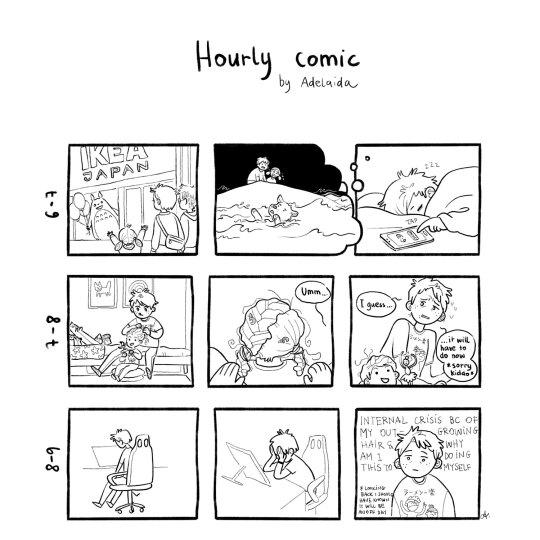
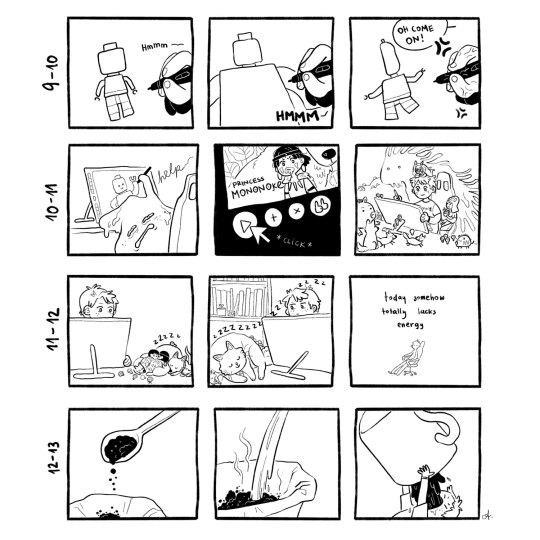
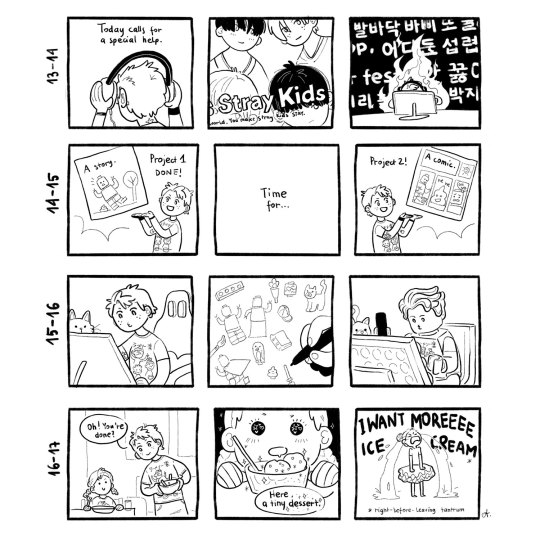
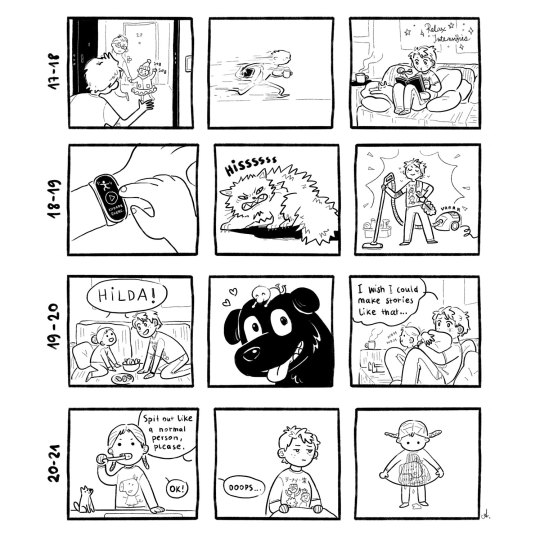
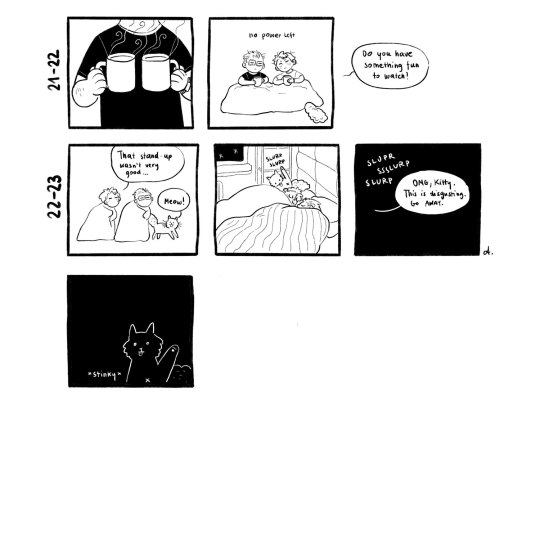
Oh look! I have finally inked it, over a week after the event!
Hourly Comic 2022
#hourlycomicday2024#hourly comic day#hourly comic 2024#adelaida art#it was a fun day!#next year Hourly will be on Saturday! so no lego drawing involved!!
88 notes
·
View notes
Text
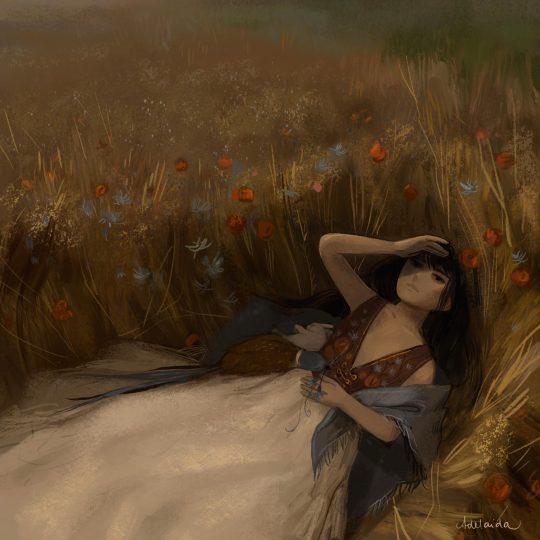
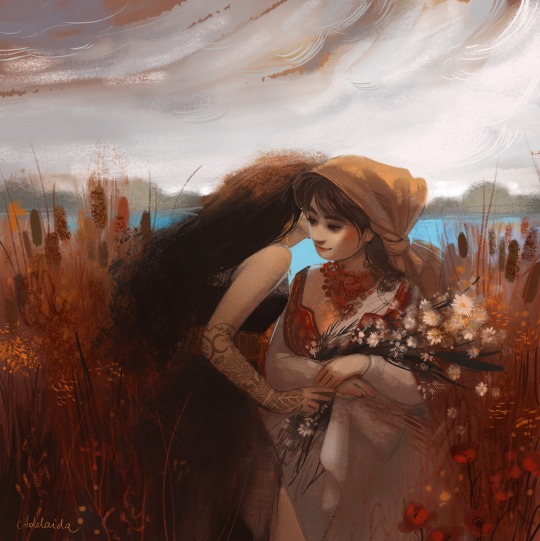
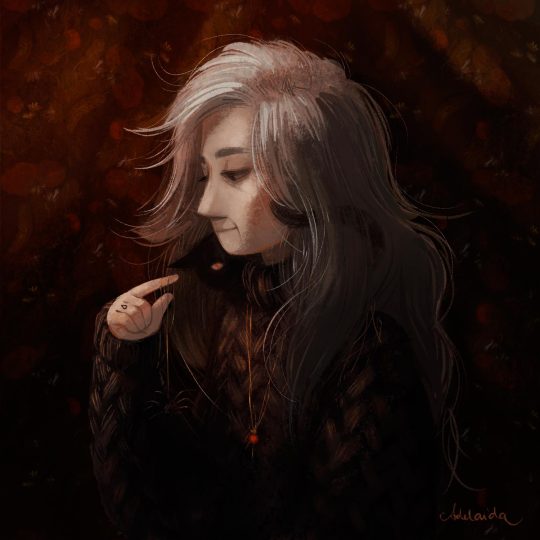

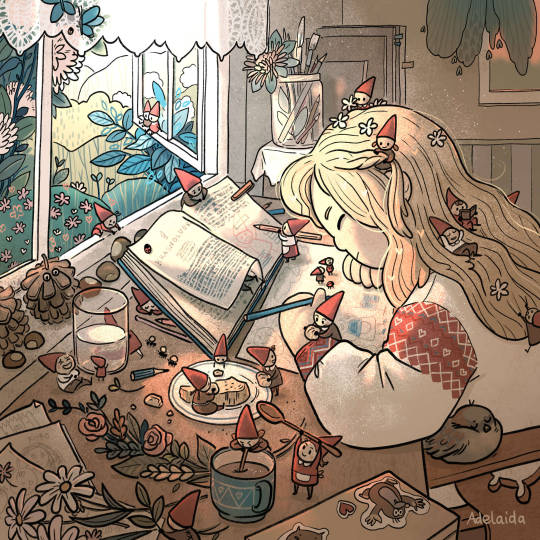
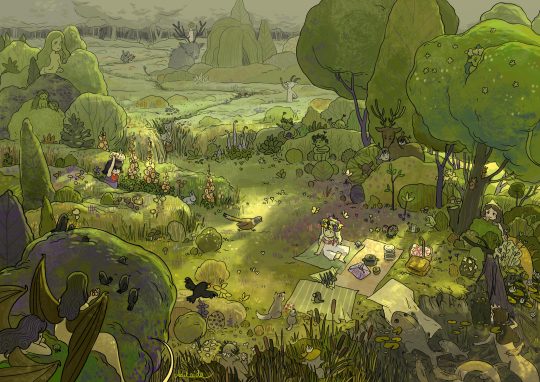
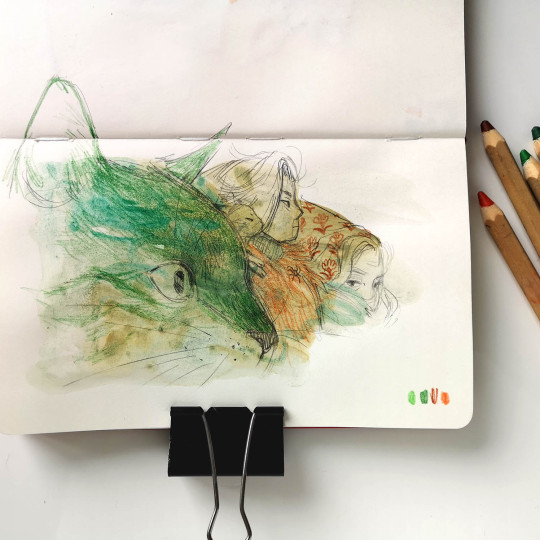
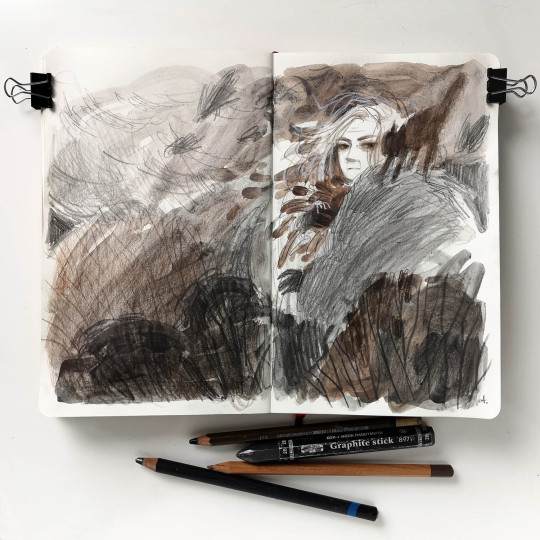
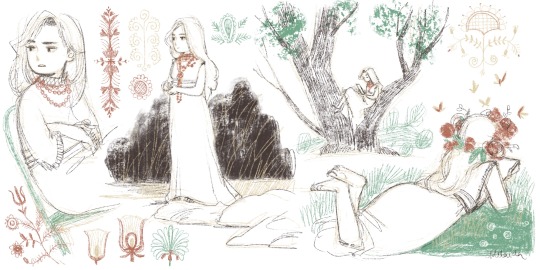
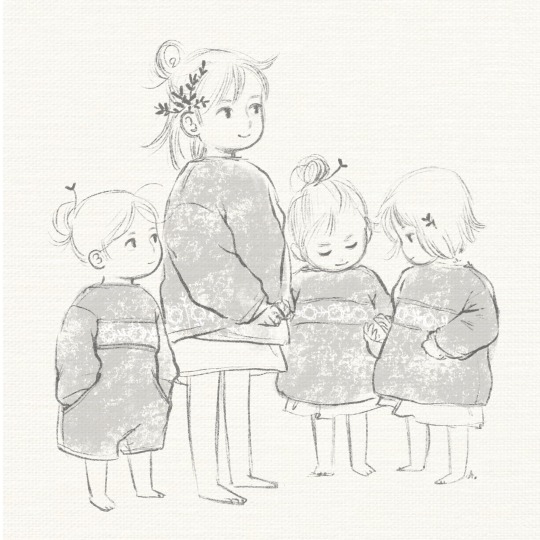
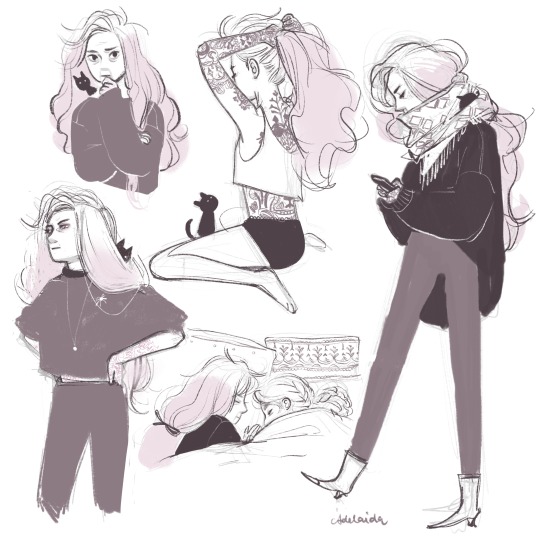
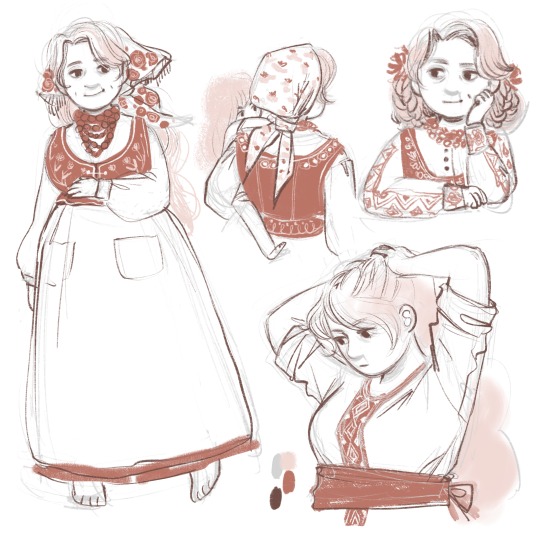
My OCs (♡-_-♡)
#rusalki#adelaida draws rusalki#adelaida art#i'm kinda shocked that i haven't shared them before here?#i probably assumed that people aren't really interested in OCs#more in fanarts#but! all the fanarts' characters were once silly little OCs too#so here we are!#i talk a bit about tem on my ko-fi and twitter#and have *plans* with them#as in comics#also thought about a childrens book bc the kids have a rather carefree life#if we forget about the fact that they are all dead :D
218 notes
·
View notes
Text
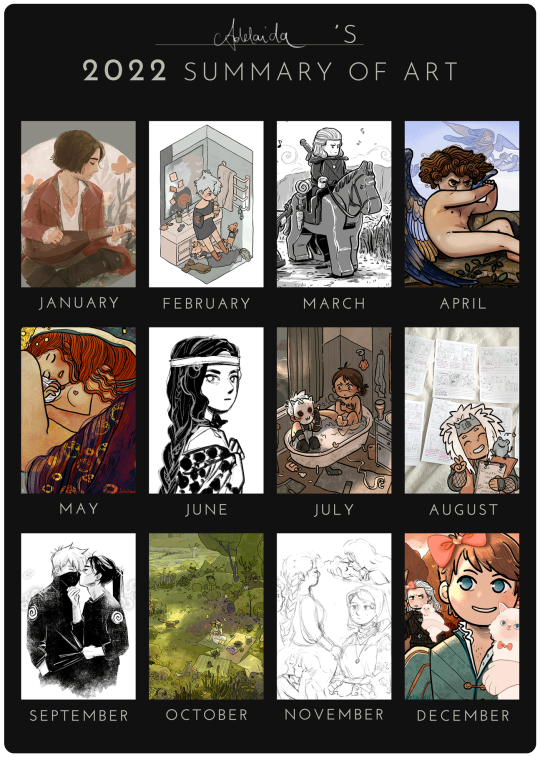
2021 / 2020 / 2019 / 2018 / 2015
#summary of art#summary of 2022#art summary 2022#adelaida art#welcome again!#nice to see all the works I did and didn't this year :'D#just for clarification -June + September + November - those literally the only things I drew those months#in June i was scripting a comic and this is a brush test I did#not much drawing happened but it was generally a very inpiring and good month#in august i was thumbnailing and scripting and sketching my kakairu comic#in september i was still doing that plus a brush test which you can see#i have no clue what happened in november - it was over too quick#it was a challenging year but i can't wait to see how 2023 will unfold and how i will manage to overcome all the challenges#(my challenge is scarping time for my own)
74 notes
·
View notes
Text
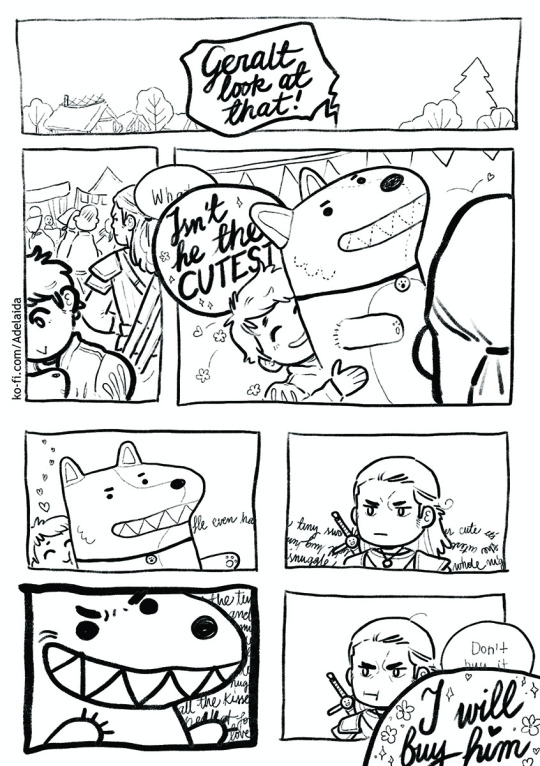

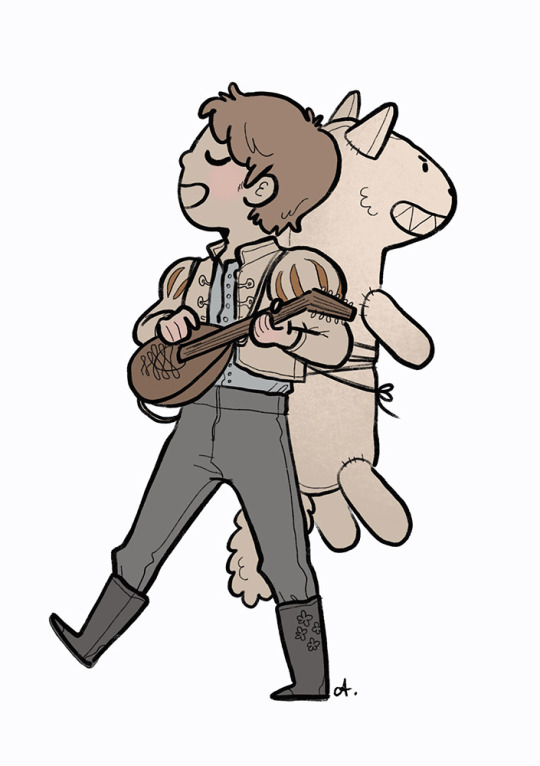
Mr Woof
#the witcher#geraskier#geralt of rivia#jaskier#adelaida art#adelaida comic#random silliness that happened unexpectedly when i was sketching warm ups#i want to draw how geraskier + mr woof arrive at kaer morhen too#and everyone's reaction#or i will be back to my regular painting#you will never know what's coming
5K notes
·
View notes
Text
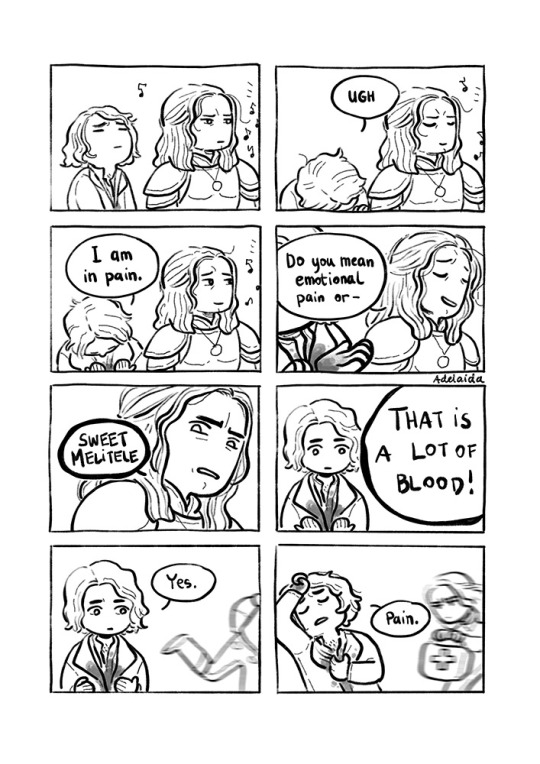
oh sweet melitele's tits
based on
1K notes
·
View notes
Text

*yellow puppy eyes*
1K notes
·
View notes
Text
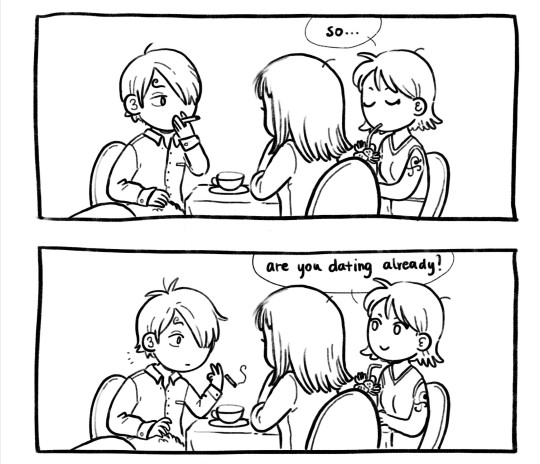

I don't know what you mean, Nami-swan
2K notes
·
View notes
Text
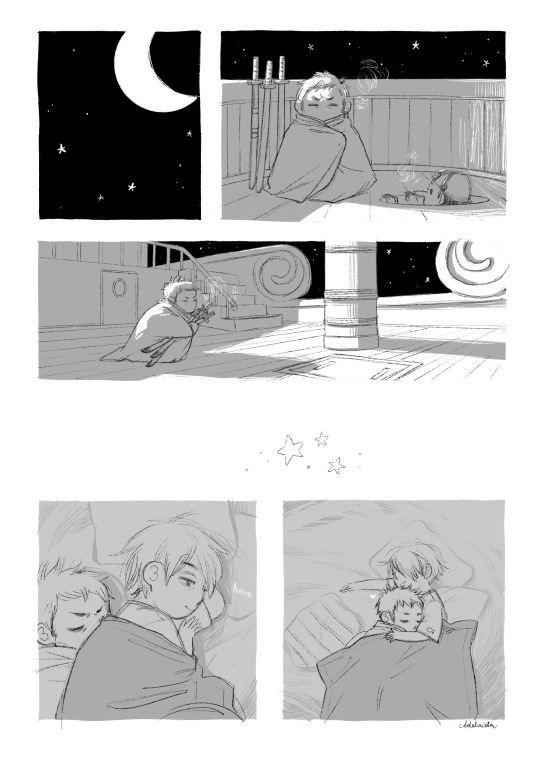
Goodnight
#one piece#zosan#roronoa zoro#black leg sanji#comic#adelaida art#Adelaida comic#short and sweet#。^‿^。
2K notes
·
View notes
Photo
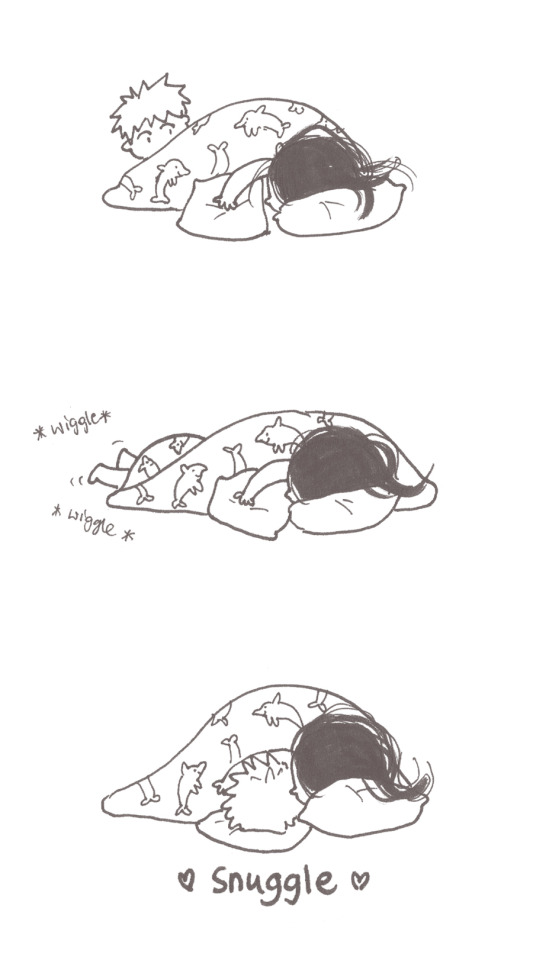




Dolphin Blanket Blend 1 / 2 / 3
303 notes
·
View notes